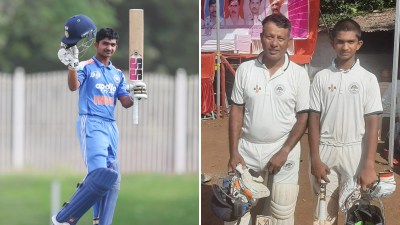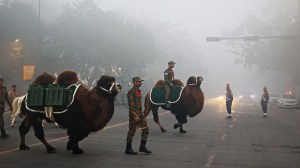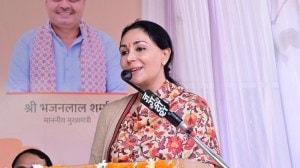145;Off-side doubt benefits attacker146;
India8217;s only Cup official clears cloud over linesmen8217;s decisions

He has been on the ball at the highest level. Komaleeshwaran Shankar, the only Indian to have officiated at the World Cup, an assistant referee in the 2002 edition understands the pressures associated with the job.
Germany 2006 has witnessed several instances where linesmen 8216;erred8217; to tilt the scales, but Shankar has interesting points lined up in their defence.
Speaking to The Indian Express from Chennai, Shankar says the general sympathy lies with the defenders. However, he adds, 8220;everybody should understand that in a tight case of off-side, benefit of the doubt goes to the attacker, and NOT to the defender.8221;
The 43-year-old, who missed his ticket to Germany by a whisker, has been sitting up late and watching matches, and feels that contrary to general perceptions, the standard of refereeing has been pretty high. 8220;The linesman goes through severe pressure. He has to keep pace, stand in line of the last defender, and see where attackers are standing at the time of release of the ball and then come up with a split-second decision. So in these cases, there are bound to be some human errors. It8217;s very easy to see television replays and point fingers.8221;
Shankar, who got his FIFA badge in 1995, says: 8220;There8217;s a level to which a linesman can concentrate. Beyond that, especially with the pace of soccer these days, lapses creep in.8221;
From his experience standing on the line he advises that playing the off-side trap is a dangerous ploy. 8220;It8217;s a tactic used by some teams, but it8217;s very risky. One small mistake, and you allow the opposition to score; like yesterday8217;s match 8211; three Spanish defenders were in place and just one man was caught in the wrong position. That allowed France to score.8221;
As a parting shot, Shankar did admit that players8217; have become cleverer and their body language changes in accordance to people who stand as referee. 8220;In this World Cup we have some very good referees, but missing the experience of someone like Pierluigi Collina. The personalities of referees do matter to the players,8221; he concluded.
- 01
- 02
- 03
- 04
- 05































